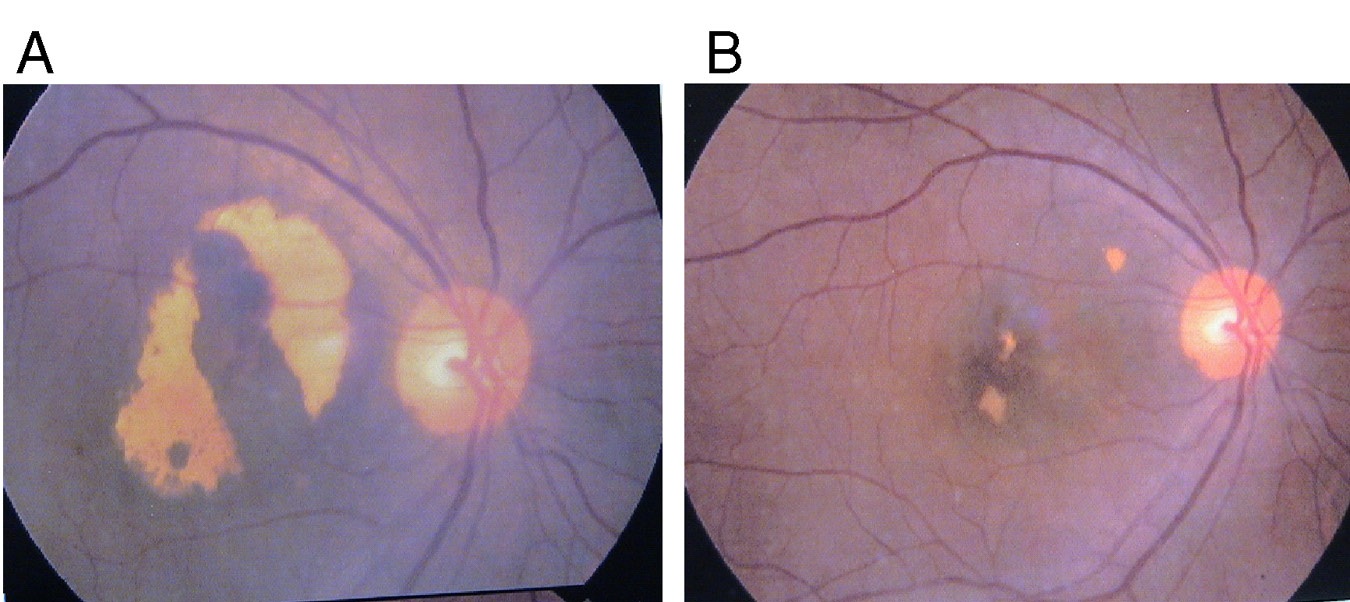Vision and Retinal Deterioration Recovery Protocol >>
Nutraceuticals >>
VisionMAX
Vein Away
Power C PLUS
Magnesium Glycinate
KardioVasc
Nattokinase
Ultra Thiamine B1
Cell Detox Glutathione
Gamma E Plus Melatonin TR
Advanced:
Red Deer Velvet DR
MyCell D3 5,000 IU
VitaMineralMAX
Mineral Plus
MicroDose (HGH)
NeuroGen
Omega Supreme Pro
Eye and Vascular Peptides
Lumen Photon Setting 3 with 180 pad under pillow on sides and back of head 15 minutes twice per day
for DIABETICS or hyperinsulinemic non-diabetics
Biotin PLUS
Chromium Cruciferate
Nutrimmune 26Y
Glaucoma – Open Angle
Causes and Risk Factors
How does open-angle glaucoma damage the optic nerve?
In the front of the eye is a space called the anterior chamber. A clear fluid flows continuously in and out of the chamber and nourishes nearby tissues. The fluid leaves the chamber at the open angle where the cornea and iris meet. (See diagram below.) When the fluid reaches the angle, it flows through a spongy meshwork, like a drain, and leaves the eye. Sometimes, when the fluid reaches the angle, it passes too slowly through the meshworkdrain. As the fluid builds up, the pressure inside the eye rises to a level that may damage the optic nerve. When the optic nerve is damaged from increased pressure, open-angle glaucoma–and vision loss–may result. That’s why controlling pressure inside the eye is important.
Does increased eye pressure mean that I have glaucoma?
Not necessarily. Increased eye pressure means you are at risk for glaucoma, but does not mean you have the disease. A person has glaucoma only if the optic nerve is damaged. If you have increased eye pressure but no damage to the optic nerve, you do not have glaucoma. However, you are at risk. Follow the advice of your eye care professional.
Can I develop glaucoma if I have increased eye pressure?
Not necessarily. Not every person with increased eye pressure will develop glaucoma. Some people can tolerate higher eye pressure better than others. Also, a certain level of eye pressure may be high for one person but normal for another. Whether you develop glaucoma depends on the level of pressure your optic nerve can tolerate without being damaged. This level is different for each person. That’s why a comprehensive dilated eye exam is very important. It can help your eye care professional determine what level of eye pressure is normal for you.
Can I develop glaucoma without an increase in my eye pressure?
Yes. Glaucoma can develop without increased eye pressure. This form of glaucoma is called low-tension or normal-tension glaucoma. It is not as common as open-angle glaucoma.
Retinitis Pigmentosa
Effects of melatonin in age-related macular degeneration.
Abstract
Age-related macular degeneration (AMD) is the leading cause of severe visual loss in aged people. Melatonin has been shown to have the capacity to control eye pigmentation and thereby regulate the amount of light reaching the photoreceptors, to scavenge hydroxyradicals and to protect retinal pigment epithelium (RPE) cells from oxidative damage. Therefore, it is reasonable to think that the physiological decrease of melatonin in aged people may be an important factor in RPE dysfunction, which is a well known cause for initiation of AMD. Our purpose is to explore a new approach to prevent or treat AMD. We began case control study with a follow-up of 6 to 24 months. One hundred patients with AMD were diagnosed and 3 mg melatonin was given orally each night at bedtime for at least 3 months. Both dry and wet forms of AMD were included. Fifty-five patients were followed for more than 6 months. At 6 months of treatment, the visual acuity had been kept stable in general. Though the follow up time is not long, this result is already better than the otherwise estimated natural course.1,2 The change of the fundus picture was remarkable. Only 8 eyes showed more retinal bleeding and 6 eyes more retinal exudates. The majority had reduced pathologic macular changes. We conclude that the daily use of 3 mg melatonin seems to protect the retina and to delay macular degeneration. No significant side effects were observed.
Potential of melatonin to treat or prevent age-related macular degeneration through stimulation of telomerase activity.
Abstract
Melatonin may play a causal role in the occurrence of age-related macular degeneration (AMD). Replicative capacity and response to injury in the retinal pigment epithelium (RPE) is compromised during aging. Prevention of telomere shortening by antioxidants may be a useful approach for reducing the cumulative effects of oxidative stress in RPE cells. Melatonin, a well known antioxidant, which acts advantageously as an amphiphilic agent, may benefit AMD patients more than commonly used lipophilic or hydrophilic antioxidants. It also may act through mechanisms other than antioxidant mechanisms because melatonin has receptors localized in the RPE, which act locally as a neurohormone and/or neuromodulator. Results of a clinical trial showed that 3mg melatonin given orally each night at bedtime for 3 months to AMD patients reduced pathologic macular changes. I hypothesize that melatonin exerts additional benefit through down-regulating hTERT (catalytic subunit if telomerase) expression and stimulated telomerase activity in RPE, which subsequently helps to prevent or treat AMD. I suggest that melatonin therapy as pharmacologic agents and/or melatonin-rich foods, especially in AMD patients with measured low serum melatonin levels or high risk patients would be possibly an alternative approach to prevent and/or treat AMD. I suggest that melatonin has potential to prevent telomere shortening in RPE, while not precluding other mechanisms, namely antioxidative properties and/or restoration of inner blood-retina barrier (iBRB) integrity, reduced vascular endothelial growth factor (VEGF) and nitric oxide (NO) levels as well as leakage of horseradish peroxidase (HRP), inhibiting hypoxia-inducible factor-1 alpha (HIF-1 alpha) stabilization under hypoxia
-
Figure 2

Figure 2: The left slide shows the eye of a 71-year old female with ARMD who after 6-months of ARMeD™ daily had her vision improve from 0.2 to 0.4 (as indicated in the right slide).
Figure 3

Figure 3: A 58 year old male whose visual acuity at the start (left slide) was 0.2. This improved to 0.4 after 6-months of regular use of the now patented ARMeD™ tablets. The sub-retinal hemorrhage and exudates was remarkably absorbed.
At the end of the study, the vast majority had dramatically reduced pathologic macular changes. Additionally the patients themselves reported better vision with improvements to glare, dryness, clarity and comfort.
Dr. Pierpaoli’s views
 When asked about this recent finding, Dr. Pierpaoli stated; “Many people are aware of melatonin’s role in jet-lag, or as a potent antioxidant, but ARMeD™is far more than this. Our research with this particular synergistic combination has highlighted its ability to re-synchronize the endocrine system as well as circadian rhythms of the wake-sleep cycles.
When asked about this recent finding, Dr. Pierpaoli stated; “Many people are aware of melatonin’s role in jet-lag, or as a potent antioxidant, but ARMeD™is far more than this. Our research with this particular synergistic combination has highlighted its ability to re-synchronize the endocrine system as well as circadian rhythms of the wake-sleep cycles.I note that while much has been discussed about the amazing ability of melatonin to, control eye pigmentation, regulate the amount of light reaching the photoreceptors and other functions in relation to eye structure; I surmise that the rebalancing of hormones and improvement of repair functions through the improved circadian sleep cycles are equally significant factors pointing to this products ability to favorably impact both wet and dry age related macular degeneration.”
DR. Pierpaoli went on to say; “We’ve seen many miraculous reversals of diseases in our patients with theARMeD™ formula. This latest study showing that it can even reverse age-related macular degeneration is truly a breakthrough in treating this condition.”
Asked whether there may be further studies targeting ARMD and melatonin, Dr. Pierpaoli said; “We accept that additional studies are needed to further confirm these results, however we are delighted that a vital benefit to slow, halt and even reverse ARMD has been discovered. Whatever the outcome of further research into the pathways and actions of the ARMeD™, the fact remains that thousands, even millions of people can now benefit from this research to protect their vision.”
Disclaimer: These Wellness Protocols are not intended to replace the attention or advice of a physician or other qualified healthcare professional. These statements have not been evaluated by the Food and Drug Administration. These products are not intended to diagnose, treat, cure, or prevent any disease.
